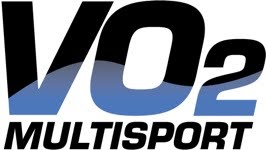It seems almost any Tom, Dick or Harry is a triathlon coach nowadays. What makes the profession so alluring? Is it the chance to generate some illicit earnings to help fund the oh so expensive multisport lifestyle? Or could it be people truly believe that a couple of seasons of racing and a USAT Coaching Certification give them the skills they need to help others achieve their multisport goals? I am not too sure, but I guess both of the above and many other reasons that I don't want to speculate on right now.
One of the more frustrating things about it is the fact that most of this new breed of coaches do this for secondary income. Some of them are Professional Athletes who supplement their meager earnings by coaching. Many of them are professionals in more mainstream occupations that believe they have acquired enough knowledge and skill sets to be able to impart advice to others in their spare time! As a full time triathlon coach, (with close to 20 years of racing and training experience, a Bachelor of Science Degree in Sport and Exercise Science, many other coaching certifications and numerous podium and overall wins at distances ranging from Sprint to Ironman) I don’t mind other people with genuine passion and enthusiasm for helping others succeed enter the world of coaching, whether as a hobby or as a full time career. What I do mind are coaches who do not take the time to fully assess their athletes and help prepare them for what they will encounter not only in a multisport event but in their training for the said event.
It is very apparent that this ‘new breed' of coach is very adept at generating generic workouts, which in reality could have been plagiarized from any triathlon coaching manual, online forum, magazine or other coach. Goodness knows I have even heard of coaches using programs they have paid for (themselves) from other coaches and selling that to unsuspecting clients who are under the impression they are getting a ‘tailored, personalized program’, ha! One step further on this scale of unscrupulous coaching practices is the bear faced cheek of those willing to coach athletes remotely without any real concern for the development and personal well being of the athlete. I have seen first hand the impact of this and the outcome is never good. Athletes who have no understanding of training session objectives, athletes blindly trying to use RPE as the only means of workout feedback (might work for a very experienced athlete, but a novice!).
So here is my appeal to all of you out there considering hiring a coach. DO consider where your current skill level is. If you feel it is low then my recommendation is to find a local coach who can work closely with you in each discipline and educate you in the art of transitions as well as the technical nuances of swim, bike, and run. If you are a first or second year triathlete who wants to progress up from short course racing to long course racing, ask yourself, do you need a coach or can you continue making improvements adopting a simple approach of progressive overload and maybe joining a local club or team to get advice and help. Some of you may want that extra hand holding and full prescription that a coach can offer but again I would argue against considering anyone not local to you.
For those of you with very specific objectives regardless of experience level I would suggest you are the group that has the most to gain from using a coach. When you have specific targets and objectives it is all to easy to bull dozer your way into a program you may have found online or elsewhere that is just to generic and not targeted specifically to you as an athlete. There are a huge number of risk factors for the goal driven athlete with a specific objective in mind, not least the risk or injury and illness. Technical deficiencies can lead to long term breaks from training. Neglecting strength and conditioning, and incorrect setting of training zones are just a small example of where your sweat and toil can go wasted.
Find a real coach, interview them, find out what other commitments they have and how many athletes they are currently coaching. Ask to speak to some of their existing athletes and ask them candidly if they are happy with the support they receive. Find out what value add the coach brings, do they offer underwater video analysis to help you with your swim or if not are they able to refer to an expert in this field who they trust. What is their coaching rationale and how do they justify it. Will they be at your ‘A’ races to help you through the day?
Even if you find a coach that on paper, and after interviewing seem to know their stuff, do you have a rapport with them? This is probably the final piece of the puzzle. Once last thing, some coaches may make the decision that you are not right for them, if this is the case it is a sure fire sign that the coach cares about you and is willing to put to one side the financial benefits of ‘one more client’, for the greater good of you the athlete!
Good luck, real coaches are hard to find.........

1 comment:
What's USAT? ;)
Learn to READ people.
When you know the HOW and the WHY... learning and adapting can be endless.
Oh... and above all... choose a coach with RESULTS!!!!!!!
Post a Comment